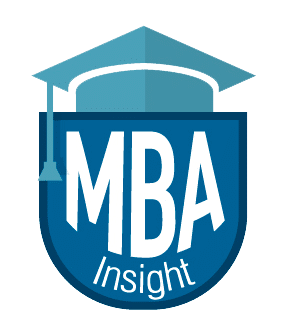Owen Graduate School of Management
Christie St-John, Ph.D., Director of MBA Admissions, Owen Graduate School of Management What is the one area of your program that you wish applicants knew more about? Choosing one thing is difficult. I think the first thing is that our MBA is a practical, professional program that provides hands-on learning experience not just theory and text-book knowledge. Second, that we are part of a Tier One Research university with resources that add to the learning experience of our students. Third, we are small enough to know all our students and can help guide them through their time here, yet we are big enough to attract top-notch companies who want to hire our students. Fourth, if one wants to develop knowledge of the health care industry, Nashville is the place to be, housing over 350 companies dedicated to various aspects of health care. Finally, the city itself has grown and developed to be much more than “Music City”. It is a vibrant, dynamic economy where a diverse industries are relocating because they have found a young, educated work force. What’s the single most exciting development, change, or event happening at you MBA program this coming year? We have several research centers at the business school that have been around for a number of years, such as the Financial Markets Research Center, e-Lab, and the Center for Environmental Management, and The Cal Turner Center for Moral Leadership. Over the last three years, we have opened (thanks to our alumni contributions) several new Centers of Excellence in which students can become involved and get hands-on experience. Most of these centers came about as a result of surveying students, alumni and companies. For example, the Turner Family Center for Social Ventures, is a cross-disciplinary center which aims to find business solutions to social problems. The TFC hosts an annual social venture summit, offers summer fellowships, plans local and international social venture treks, and case competition opportunities. The new Owen Entrepreneurship Center (that operates in conjunction with the Nashville Entrepreneur Center) features many on-site resources and competitions for cash prizes to help launch a business, with the main function being to connect investors and entrepreneurs. The Center also sponsors the regional chapter of the Young Entrepreneurs Organization, providing a wide network of advisors and mentors. The Center for Health Care Market Innovation conducts research on the demand for health care, how that is changing, and what new financing and delivery models might meet changing consumer needs. This fits in well with our focus on health care issues. And I must also mention the $4 million renovation of our business library and study rooms. The library justre- opened in August 2017 and it is an amazing facility. Walk us through the life of an application in your office from an operational standpoint. What happens between the time an applicant clicks “submit” and the time the committee offers a final decision (e.g. how many “reads” does it get, how long is each “read,” who reads it, does the committee convene to discuss it as a group, etc.) The application comes in and I and one other director quickly review the basics such as GMAT, GPA, work experience and career goals, to determine if this is a candidate we want to interview for the program. Once the interview is written up and the application is complete, it is evaluated in depth by the admission officer assigned to that particular applicant. After that, a second, blind evaluation is conducted by another admissions officer. Finally, all applicants that have been selected as definite or probable admits and those who are “on the line”, are presented to the Admissions Committee. The Committee is composed of only admissions officers and one or two of the Career Management staff. The meetings can take a long time as we discuss each aspect of every candidate to be sure we make the right decision. We also decide on whether the candidate qualifies for a merit scholarship and how much. Once this is finished, another director and I go back over the decisions, and then they are processed and the notifications go out. We do not utilize students, alumni or outside readers/interviewers for any portion of this process, mainly because we know what we are looking for and how the class composition is coming along at any point during the process. How does your team approach the essay portion of the application specifically? What are you looking for as you read the essays? Are there common mistakes that applicants should try to avoid? One key thing they should keep in mind as they sit down to write them? We don’t ask for essays just to keep us in reading material. They are an important part of learning about the candidate and they help us decide if this person is right for our program and if our program is right for them. If the essay is broad, vague and very general, we can’t get a good idea of what the candidate wants, and it causes us to think that the person really doesn’t know. We are only asking one essay question this year, which we re-wrote in an attempt to make it crystal clear – we will see if that worked. We want to know what skills they have developed so far, what they need to learn for the job they think they want, why they think they want a particular job, and how will they go about developing themselves at our program. This is very basic. We introduced a video essay this year, just to get a better idea of each candidate’s communication ability and their personality. The questions are simple and should be easy to answer. Do you have any application tips (for essays & recommendations) for MBA applicants? The usual – read the essay question, don’t cut and paste your answer from another school’s essay, and think through what you want us to know. Write it yourself, do not depend on someone else to craft your answer. But do get feedback! The recommendations are also critical because this is the only “outside” perspective on the candidate, other than our interview. Find someone who can talk to us about your leadership, your initiative, your skills in general, and also what you need to improve upon. The title of the recommender is irrelevant – it is how well they know you that counts. What are the most important aspects of the MBA application process besides GMAT score, prior GPA and current job position? Knowing why you are doing an MBA! And that is not a facetious answer. You would be surprised at how many people really don’t know what an MBA is or why they should do it. We probe in our interviews to find out, if the essay is not clear. The second thing is knowing our school and why our program will help them get where they want to go. Not every b-school is right for certain career paths, and finding the best fit is crucial – yet often overlooked by candidates. How can a candidate overcome a lower GMAT score? If a candidate has strong undergrad grades in statistics, algebra, economics and/or accounting, we may not worry too much about the GMAT—unless their grades were from more than 5 years ago and they do not use quant in their job now. We often offer the services of our math professor to work with students on the GMAT, so that they can retake it and hopefully improve the score. Candidates really should prepare for the GMAT about six months in advance and focus especially on the quant portion of the test. There is no way to get around taking quant classes in any b-school! We ask GMAC to run a validation study on our class every other year and what we have found guides our admission offers to a certain degree– those with low GMAT scores (or low quant GRE scores) and no quant in undergrad tend to be in the lowest percentile of the class and they will struggle to keep up. That is not what we want, nor does the student. That is why we try on the front end to get them prepared. What resources are available at your MBA program to assist with internship and full-time job opportunities? The career management office starts working with our deposited candidates in April and during the summer. They have prepared a series of podcasts, online videos, etc. and during Orientation there are three days devoted to the career search process. Our career staff has been ranked “A+” by the students for several years. Why? Because they take the time to talk to each student, get to know their qualities and what they want, then set about helping the students learn about what opportunities are out there, where they would likely be successful, what alumni to connect with to learn more about particular companies, and what skill sets they will need to obtain the job they want. It is part of the MBA education to figure out what you are good at and what you really like, then put the two together to find the perfect job. Our placement rates rank up there with the top 10 schools: 100% for internships and about 94% for full-time positions.


